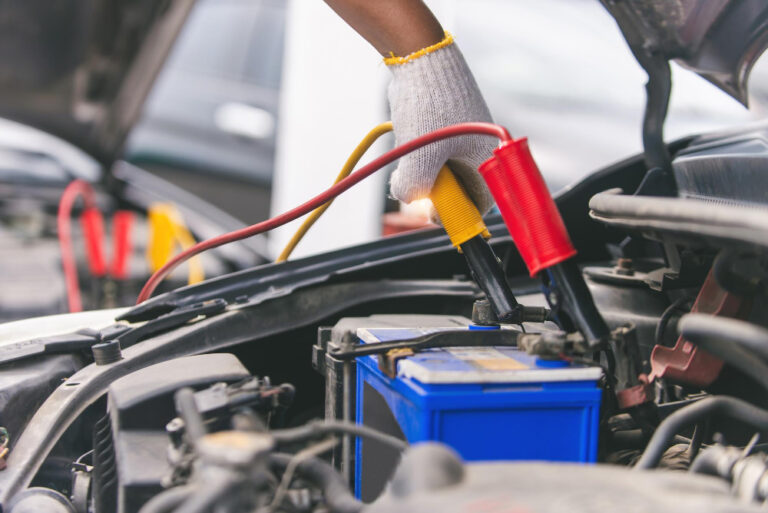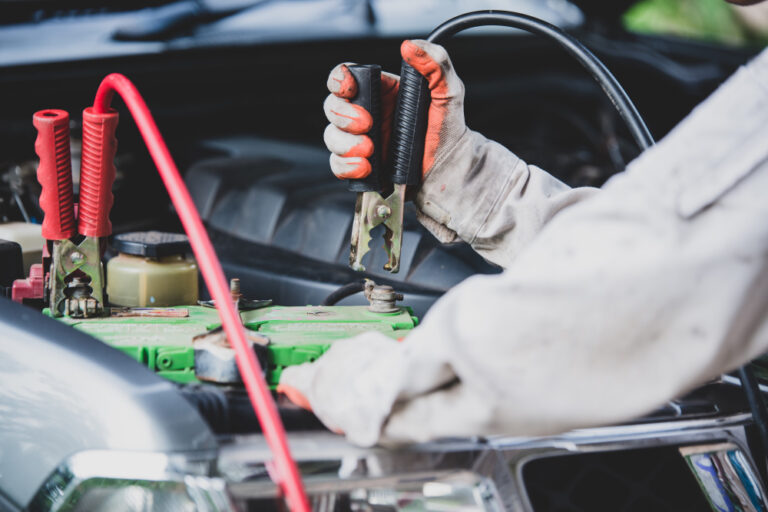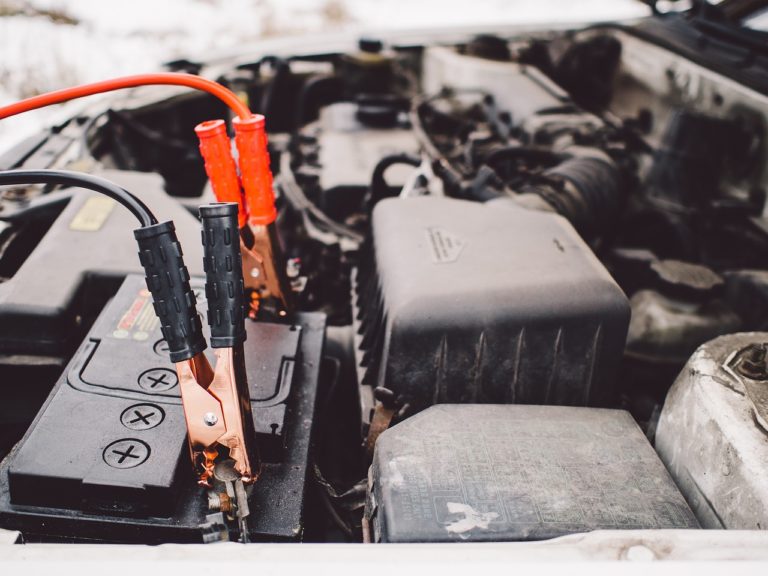That dreaded clicking sound on a frosty morning – we’ve all been there. Winter battery problems strike when least expected, leaving many drivers stranded in the cold. At Durham Towing Company, our team handles countless winter battery emergencies throughout Durham, Chapel Hill, and RTP areas. Through years of experience, we’ve gathered essential knowledge about why car batteries struggle in winter and how you can prevent these issues.
Need immediate assistance? Call us at 919-805-3344. But first, let’s understand what’s really happening under your hood when temperatures drop.
How Cold Weather Affects Your Car Battery
Cold weather creates the perfect storm for battery problems. When temperatures plummet, the chemical reactions inside your battery slow down significantly. A battery that performs perfectly at 80°F can lose up to 60% of its starting power when temperatures hit the freezing point. Your engine’s oil also thickens in cold weather, requiring more power to turn over – exactly when your battery is at its weakest.
Think of your battery like an athlete trying to sprint in heavy winter clothes. It’s working harder but producing less power. Cold temperatures don’t just affect the battery’s ability to provide power; they also impact its ability to receive a charge from your vehicle’s charging system.
Common Winter Battery Problems
Winter throws multiple challenges at your car’s electrical system. The most immediate issue is the increased power demand during cold starts. Your engine requires nearly twice the power to start in cold weather compared to warm conditions. Meanwhile, your heater, defroster, and lights are all drawing maximum power.
Modern vehicles with multiple electronic systems face additional challenges. These systems continue drawing small amounts of power even when your car is off, which can be especially problematic during long periods of inactivity in cold weather.
Warning Signs of a Failing Battery in Cold Weather
Your car often sends clear signals before a complete battery failure. Does your engine turn over more slowly than usual? This is often the first warning sign. Pay attention to how your headlights perform – if they’re notably dimmer before starting the engine, your battery might be struggling.
Other warning signs include:
- A sulfuric smell near the battery
- Dashboard warning lights that flicker or stay on
- Power windows moving slower than normal
- Multiple failed start attempts needed before the engine turns over
Preventing Winter Battery Failures
Prevention starts with understanding your battery’s age and condition. Most car batteries last 3-5 years, but extreme temperatures can shorten this lifespan. Regular battery testing becomes crucial before winter sets in. A professional load test can reveal problems before they leave you stranded.
Keep your battery clean and corrosion-free. Corrosion on terminals acts like an insulator, making it harder for power to flow. Check for white, green, or bluish deposits around battery terminals and clean them carefully with a wire brush and appropriate cleaning solution.
Parking choices matter too. Whenever possible, park in a garage or sheltered area. If outdoor parking is unavoidable, consider a battery insulation blanket – they’re relatively inexpensive and can help maintain battery temperature.
What to Do When Your Battery Dies in Winter
Found yourself with a dead battery? Stay calm and follow these steps. First, ensure you’re in a safe location. If you need to jump-start your battery, position the helping vehicle close enough for jumper cables to reach, but not touching your car.
Always connect jumper cables in the correct order:
- Red clamp to positive terminal of dead battery
- Other red clamp to positive terminal of good battery
- Black clamp to negative terminal of good battery
- Other black clamp to unpainted metal surface in engine bay
After a successful jump-start, let your engine run for at least 15 minutes to allow the battery to regain some charge. However, a jump-start is often a temporary solution. Have your battery tested professionally to prevent repeat incidents.
Long-term Battery Care for Winter
Think of winter battery care as a year-round commitment. Regular maintenance checks can identify potential issues before they become emergencies. Keep track of your battery’s age and consider replacement before it reaches the end of its expected lifespan.
When replacing your battery, choose one rated for your climate. Cold Cranking Amps (CCA) ratings matter – higher numbers indicate better cold-weather performance. For our Durham area winters, a battery with at least 600 CCA is recommended.
Don’t wait until winter to check your battery’s health. At Durham Towing Company, we recommend getting your battery tested in fall, before temperatures drop. Need assistance or want to schedule a battery check? Our team is available 24/7 at 919-805-3344. We serve Durham, Chapel Hill, RTP, and surrounding communities with prompt, professional service to keep you moving safely through every season.




